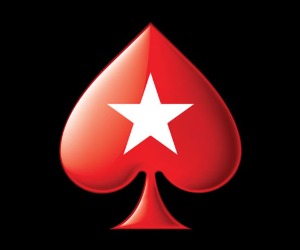Deep Water Hold'em: The Ultimate Guide

Table Of Contents
There's a new game in town and its name is Deep Water Hold'em
It's the latest non-traditional poker variant created by the world's biggest online poker site PokerStars.
And this is the only Deep Water Holdem Poker guide you will ever need.
Before you go clambering for your mouse and firing up the PokerStars client, let us talk you through what to expect from the newest game on the block.
What is Deep Water Hold'em?
When we first heard the name Deep Water Hold'em we immediately thought of players wearing scuba gear and playing poker from the ocean floor.
While there is a water theme to Deep Water Hold'em, you're not going to get wet, nor does it require breathing apparatus to play.
What is Deep Water Hold'Em?
Deep Water Hold'em is a six-handed cash game that follows the same rules as a traditional hold'em game.
But with a couple of major differences, of course.
The first thing you'll notice is that there is a third blind in play dubbed the Giant Blind.
Think of this as a forced straddle bet.
There are also antes in play to help drive the action and those antes increase or decrease in size based on previous actions.
Antes increase each time a hand does not go to showdown before resetting back to the original value after a showdown.
For example, at the $0.25.$0.50/$1 stakes the ante starts at $0.10. This ante increase to $0.20 if the hand does not go to showdown.
Should the next hand be settled without a showdown the ante increases to $0.30. The antes then reset back to $0.10 the next time a showdown occurs.
Currently, the maximum ante is four-times its original value.

Get more action and bigger pots with the mandatory straddle bet aka. the Giant Blind!
Remember: Deep Water Hold'Em is available only on PokerStars.
Play NowBuy-ins and Stakes
PokerStars has made Deep Water Hold'em available across eight different buy-in levels start at only $15 and increasing to $3,000.
This means stakes range from $0.02/$0.05/$0.10 all the way up to $5/$10/$20.
The minimum buy-in is 100 big blinds with the maximum set to 300 big blinds.
| Maximum Buy-in | Blinds | Ante | |
|---|---|---|---|
| $15 | $0.02/$0.05/$0.10 | $0.01 to $0.04 | |
| $30 | $0.05/$0.10/$0.20 | $0.02 to $0.08 | |
| $75 | $0.10/$0.25/$0.50 | $0.05 to $0.20 | |
| $150 | $0.25/$0.50/$1 | $0.10 to $0.40 | |
| $300 | $0.50/$1/$2 | $0.20 to $0.80 | |
| $750 | $1/$2.50/$5 | $0.50 to $2 | |
| $1,500 | $2.50/$5/$10 | $1 to $4 | |
| $3,000 | $5/$10/$20 | $2 to $8 |
Deep Water Hold'em Pros
The biggest advantage Deep Water Hold'em has over a traditional cash game looks to be the pots grow larger far faster.
It should be obvious that the introduction of the Giant Blind and antes would do this because there is physically more money in the pot preflop.
Need any examples?
- Standard Poker Game: in a standard $0.50/$1 game there is only $1.50 in pot before anyone raises.
- Deep Water Hold'Em: In the equivalent Deep Water Hold'em game with $0.50/$1/$2 and a $0.20 ante in play, there is $4.70 in the middle, more than three-time the size.
Everyone loves the feeling of dragging in a large pot and it appears Deep Water Hold'em is making it easier to do exactly that.
Another major difference, as pointed out by Team PokerStars' James “OP-Poker James” Mackenzie is players are still in the process of figuring out the optimal strategy for Deep Water Hold'em.
The perfect strategy changes depending on the size of the antes at the time.
As pointed out by Mackenzie in a public YouTube video, the introduction of the Giant Ante creates an interesting dynamic on the button.
Ideally, you should be playing tighter on the button than usual because there are now three players left to act, but the extra money in the pot means you should play more pots to try and win this additional money.
These nuances result in players making more mistakes, particularly with their preflop bet sizing, so the games are considered to be soft right now.
How long that stays the case, however, remains to be seen.
Read also: 7 Poker Tips to Take Your Game From "Meh" to Amazing
Deep Water Hold'em Cons
It's not really a major negative but the name Deep Water Hold'em is bad.
Aside from the table theme, when using the Aurora engine, looking like you are underwater, complete with angler fish and jellyfish floating around, what does the name have to do with the actual game.
It just makes it feel gimmicky.
A personal worry stems from Mackenzie's comments about recreational players making a lot of mistakes with bet sizing and liberally calling three-bets.
The silly name and graphics are going to attract recreational players like fish to a baited hook, but continual mistakes could increase their risk of ruin.
Larger pots and, for now, plenty of amateur players are going to attract professional players in droves.
Again, this is purely speculative, but Deep Water Hold'em could end up being quite shark-infested, which in turn could see it run dry before it is pulled (as these gimmick games tend to be) or even make it unbeatable in the long run.
Should You Play?
On the whole, Deep Water Hold'em looks to be a good idea but Ante games are not as popular as they have been in the past.
[There are only four $0.01/$0.02, a $0.05/$0.10 and $0.1/$0.25 table were running at 8:30 p.m. CET on Nov. 27]
So it beggars the question as to why it was launched.
Perhaps the game could be pathway for straddle games in the future if it proves to be a hit with PokerStars' players?
Try it for yourself and see what you think because you may find you love it. The big pots are certainly fun to pull in.

Get more action and bigger pots with the mandatory straddle bet aka. the Giant Blind!
Remember: Deep Water Hold'Em is available only on PokerStars.
Play Now









